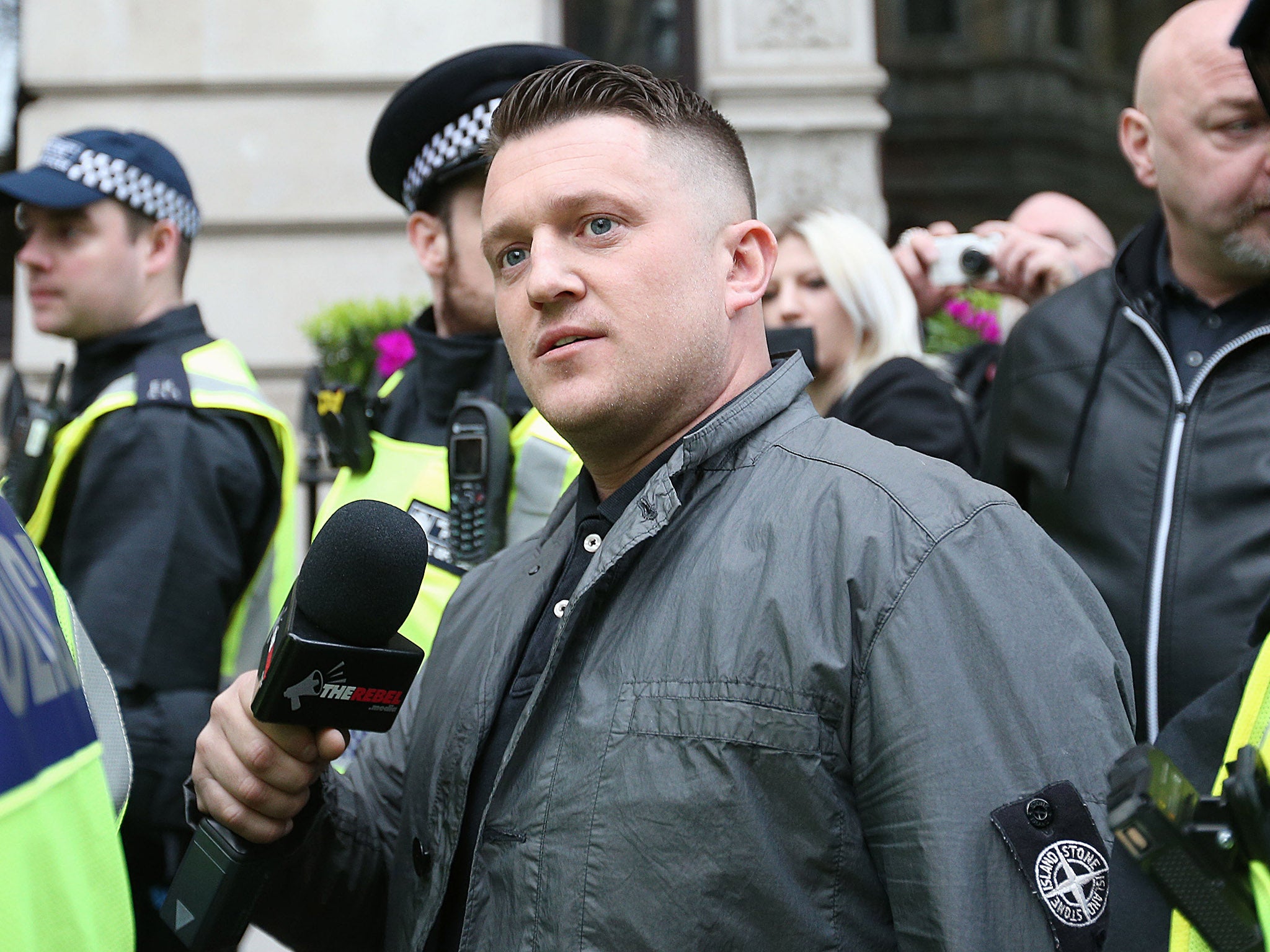Finsbury Park attacker turned violent by far-right posts from Tommy Robinson and Britain First, police say
Metropolitan Police Assistant Commissioner Mark Rowley warns of dangers of online extremism

There is “no doubt” that far-right material posted online by the likes of Tommy Robinson and Britain First drove the Finsbury Park terror attacker to target Muslims, the UK’s most senior counter-terror officer has said.
Mark Rowley, the outgoing Assistant Commissioner of the Metropolitan Police, said Darren Osborne – an alcoholic, suicidal, unemployed “loner” – was vulnerable to radicalisation.
“He had grown to hate Muslims largely due his consumption of large amounts of online far-right material including, as evidenced at court, statements from former EDL leader Tommy Robinson, Britain First and others,” he told an event in London.
“Osborne had a ‘dysfunctional’ background and history of alcohol and drug abuse, and violence.
“There can be no doubt that the extremist rhetoric he consumed fed into his vulnerabilities and turned it into violence.”
Osborne, a father-of-four from Wales, was radicalised within weeks as he consumed far-right material after watching a BBC documentary on grooming gangs in Rochdale.
He hired a van and drove it from Cardiff to London, intending to massacre pro-Palestinian protesters before a security perimeter forced him to hunt for an alternative target.
Osborne rammed the vehicle into a crowd of Muslim worshippers leaving mosques in Finsbury Park shortly after midnight on 19 June, killing a grandfather and injuring several others.
Jailing him for life last month, Justice Cheema-Grubb took aim at “the bile spewed out online from those who aspire to lead the haters” and said there was no justification for violence in response to terror or grooming gangs.
“You were rapidly radicalised over the internet encountering and consuming material put out in this country and the USA from those determined to spread hatred of Muslims on the basis of their religion,” the judge told Osborne.
“Over the space of a month or so your mind-set became one of malevolent hatred.”
Giving a lecture at an event held by the Policy Exchange think-tank, Mr Rowley revealed that four far-right terror plots had been foiled since the Isis-inspired Westminster attack in March last year.
He said both Islamists and the far-right were “executing a common strategy” by exploiting existing grievances in target communities, generating distrust of state institutions and then “offering warped parallel alternatives”.
“This helps create the isolated, fearful setting for terrorists to step into – whether that’s in person or online – to inspire often vulnerable people to carry out attacks,” he added.
Mr Rowley cited the murder of Lee Rigby, where “long-term” Islamists who had been inspired by Anjem Choudary’s banned al-Muhajiroun Islamist network as another “example of where extremism leads to terrorism”.
Finsbury Park attack
Show all 14He said Choudary and Robinson, attracted “notoriety and attention” at the same time as they were positioned on the opposite sides of public debates in the 2000s.
“Robinson became a regular fixture in our media giving him the platform to attack the whole religion of Islam by conflating acts of terrorism with the faith often citing spurious claims, which inevitably stirred up tensions,” Mr Rowley said.
“Such figures represented no more than the extreme margins of the communities they claim to speak for yet they have been given prominence and a platform.”
Choudary, whose supporters have been linked to a string of terror attacks and fought in Syria, was later jailed for inviting support for Isis and remains in prison.
Robinson now styles himself as a journalist and continues to spread his message online, with hundreds of thousands of followers on social media.
Mr Rowley also cited far-right groups including anti-Islam Britain First, saying they had used grooming cases to “spread discord and hatred against Muslim communities”, and criticised Muslim advocacy group Mend and Cage.
“We can collectively do more to make it even harder for the extremists’ strategy to endure,” he urged.
“This means every part of society – not just those charged with national security responsibilities – coming together to confront the twin challenges of terrorism and extremism.”
Subscribe to Independent Premium to bookmark this article
Want to bookmark your favourite articles and stories to read or reference later? Start your Independent Premium subscription today.
